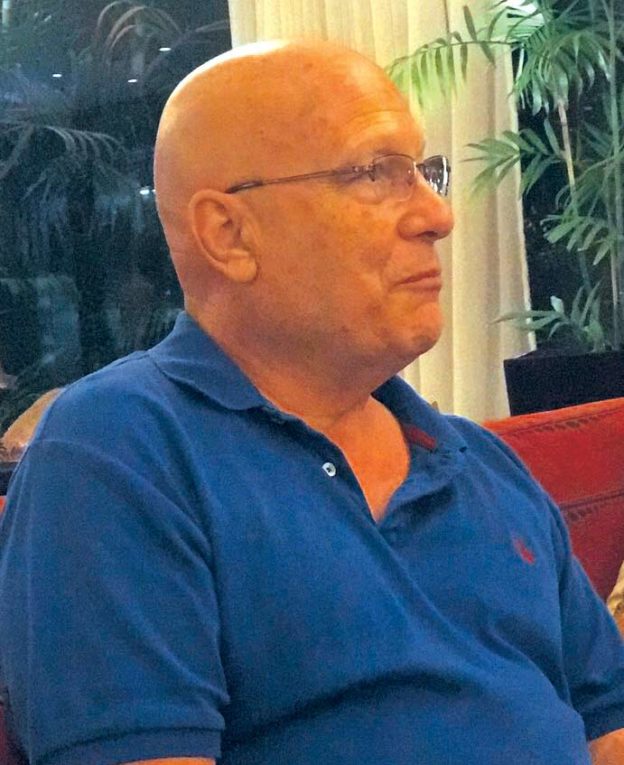‘I see Pakistan is on a verge of explosion—a positive explosion in terms of its ability of exporting to the world. It has a tremendous opportunity.’
Engineering Review had the prestige to interview him in Karachi. Here is what he says about himself and Pakistan’s growing pharmaceutical industry.
Engineering Review: Tell us about yourself! How did you begin your career in this field?
Dr. Fred Rowley: I graduated from the College of Pharmacy. I immediately went to production floor in solid dosage. I discovered very quickly that mostly people in the factory with me although they held positions of responsibility knew very little about how actually tablets are made. And very quickly after that I was considered an expert although I did not consider myself the same. Through a series of unusual circumstances I gained quite a bit of knowledge in different parts of solid dosage manufacturing very quickly. The director of manufacturing whom I was under asked me to step away from manufacturing and shift to what we call today as technology transfer. The second set of circumstances was that I started lectures which proved to be useful and gained admiration and was considered to be more knowledgeable than other professors in the universities. I constructed a course and delivered it in New Jersey where more than one hundred people turned up for it. Gradually I earned prominence in pharmaceutical industry. Even now I keep on teaching and troubleshooting, and it has grown into a full time job internationally. This year alone I will visit 9 countries.
ER: How do you feel being in Pakistan and what’s your experience here?
DFR: I met Mr. Khalil 18 months back at Yen Chen Machinery at their 50th anniversary celebrations. We became instant friends. We ta
lked about the possibility of my coming here. I had never been to Pakistan. My friends reacted ‘what an opportunity and please come back and tell us about your experience.’ I have given a public lecture here. There are four to five companies here who are interested in learning more. I enjoyed coming here. Some people from some countries are little bit apprehensive about coming here. You understand why, but I find it like I am coping similarly to what I did in some other countries.
ER: How can we improve the quality of pharmaceutical companies in Pakistan?
DFR: Your international companies which have set up a factory here, they follow international standards and have their own way of manufacturing according to GMPs. Then you have local companies who are making pharmaceuticals for Pakistan and trying to export. These are the companies which need to grow up to international level. They require manufacturing expertise. I hope to provide help in gaining this expertise and also to help them understand better how tablet manufacturing is done successfully because it is not easy. It is frequently misunderstood, done incorrectly and there is a lot of misunderstanding. That is one reason why I am here.
up to international level. They require manufacturing expertise. I hope to provide help in gaining this expertise and also to help them understand better how tablet manufacturing is done successfully because it is not easy. It is frequently misunderstood, done incorrectly and there is a lot of misunderstanding. That is one reason why I am here.
ER: How would you compare our local pharma industry with other third world countries?
DFR: As I said earlier multinational companies have their own standards. Local industry is growing because it has a great opportunity. But the problem is, let’s suppose in India wages are growing dramatically and there is a big need for professionals. Up until about 18 months ago I spent one third of every year teaching people there. I still do it. They have quite a lot of issues. One of them is labour. Right here in Pakistan what I see is you are on the verge of explosion, a positive explosion in terms of your ability of exporting to the world. And that is a tremendous opportunity.
ER: How would you rank our pharma products?
DFR: If you accept the first world is United States and perhaps Europe then you are second world. I think Pakistan is now no longer third world. I think in pharmacy it is in second world and there is a tremendous potential of more knowledge and more dedication. It has the ability and I am sure many companies are beginning to export into the first world to fill the need that India can no longer fill. In you go for example, to the US there are some doctors who don’t allow patients to take a prescription for pharmaceuticals made in India. That is not the case for Pakistan.
ER: It shows Pakistani pharmaceutical manufacture has a potential to export to the first world?
DFR: I am not sure but once I had gone through an article that there is a group of physicians from Chicago area who don’t allow patients to use Indian pharmaceuticals. Their reputation has gone so down. Maybe it is because of some bad manufacturing practices in India. Pakistan has as yet not exported its pharma products to the US. Still there is a lot of opportunity.
ER: Are the people learning here from your expertise? Or are they resisting introduction of new thoughts and technologies?
DFR: So far I have been to 4-5 firms. In general I think the people are open and willing to learn; willing to listen and willing to apply. I believe I am a born teacher and it is God gifted








